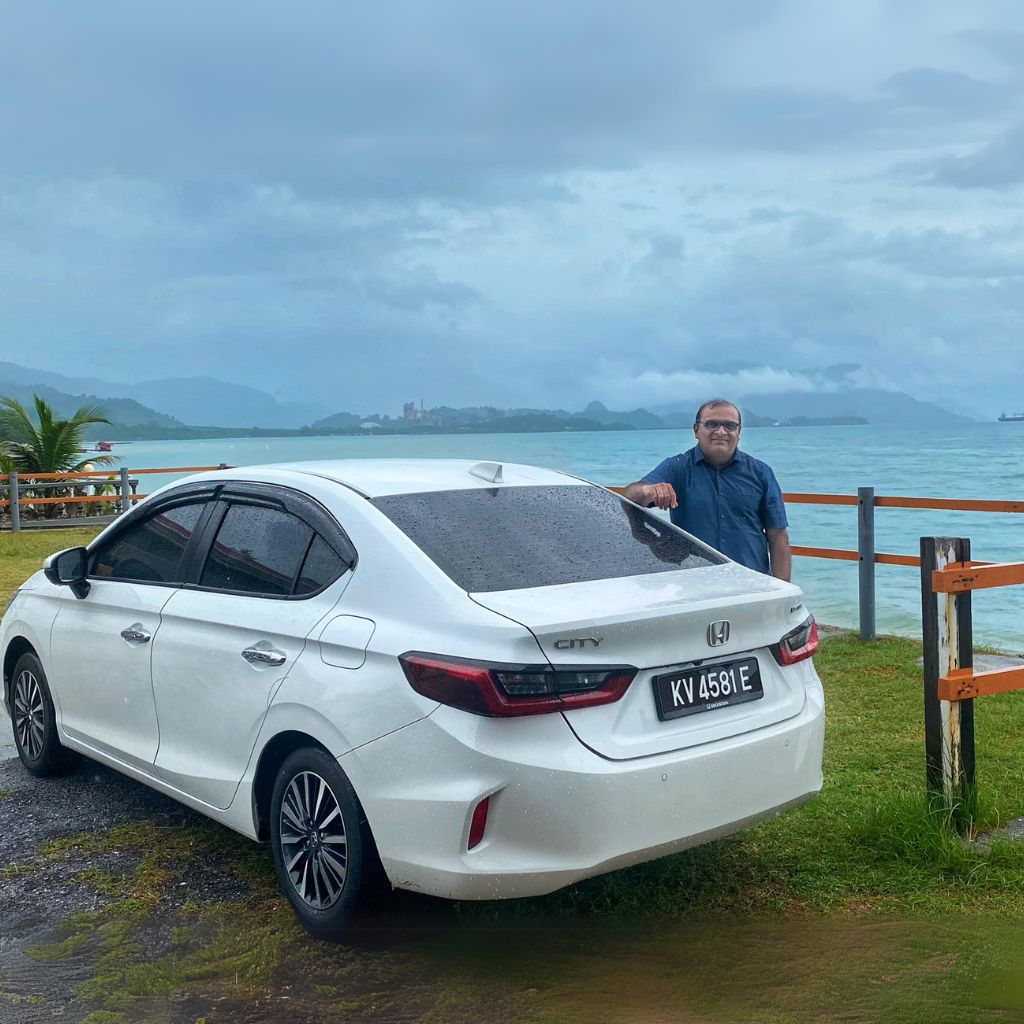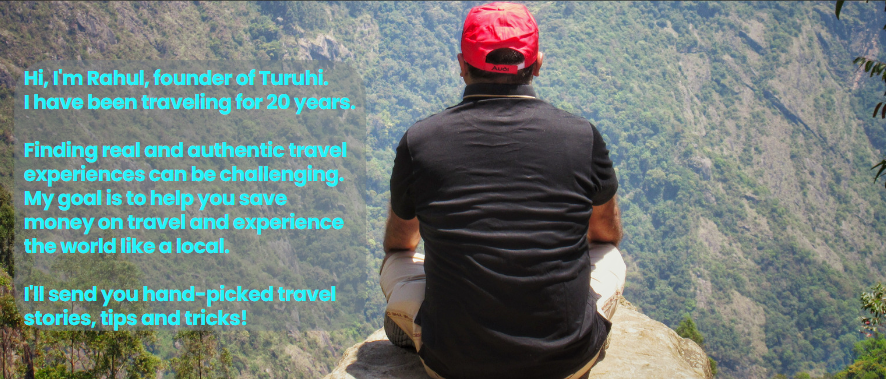Most travel disasters are the result of poor planning. Some travelers learn from their own mistakes, while some learn from the mistakes of others.
I have learned from both. That’s why I’ve honed my ability to plan a trip to near perfection. I can’t recall a single travel disaster in the last 15 years.
Neither have I read any travel books nor taken a travel planning course.
There are a lot of ways to plan a trip. Some people like to plan everything down to the last detail, while others prefer to go with the flow and see where the wind takes them.
I’m somewhere in the middle. I like to have a fairly detailed plan in place, but I also leave room for spontaneity and contingency. I’m happy to share my rules for planning a successful trip.
These are just some rules that have worked well for me in the past, so make sure to do your research and tailor them to fit your needs.

Rule 1: Don’t let firehose of information overwhelm you
Everyone will suggest “The top 5 places on earth you must visit before you die.” It’s easy to get lost in an ocean of blogs, social media, and reviews. With so much information at our fingertips, it can be overwhelming to try to figure out where to even start.
The most crucial thing is not to get caught up in marketing ploys. Start by thinking about what kind of trip you want to take. Are you looking for a relaxing beach vacation or an adventure-packed road trip? Don’t just say “I’m going to the Caribbean this summer.”
Remember, you’re going to a destination because you want to go there, not because someone has glorified it.
Once you have a general idea of your destination, you can begin to narrow down your search and get specific about what you’re looking for. For example, when I was planning our family trip to Australia, we decided to do a bit of an interior road trip and avoid major cities. We chose the tropical region because we were going there during summer in India, which is winter in Australia. It is impossible to visit the entire country in a single trip.
Rule 2: Set a budget, but do not swear by it
99 out of 100 travel blogs will tell you to set and stick to a budget, and some will even go so far as to teach you how to set a budget.
It’s your trip and your money, don’t let someone else take control of it. It’s OK to make mistakes, at least you don’t have anyone else to blame for it. You will learn in the process.
Never take a trip on a shoestring budget. Instead of enjoying your trip, you will be constantly debating if it is worthwhile to spend this much money on doing something. You’ll eventually pass up many exciting activities and wind up wasting money on cheap, meaningless things.
I’m not saying that you should go all out and spend recklessly, but don’t let your budget turn into a ball and chain. You should have a budget to keep your expenses in check but leave plenty of room for spontaneity.
The majority of my trips over the last 15 years have been “no budget,” and I have returned spending far less money than I anticipated. Whenever I have traveled on a set budget, I have had a mediocre experience.
Managing your expenses wisely while traveling is an art that you must learn if you intend to travel frequently. You don’t have a choice.
Rule 3: Plan your vacation – travel agents are antiquated
It’s the long-awaited vacation you’ve been looking forward to. You’ve overcome numerous obstacles, saved money, and nurtured a dream. You don’t want to entrust your vacation to someone who has no idea what kind of traveler you are.
No offense to travel agents, but they are neither experienced travelers nor willing to spend hours and days researching for you.
If you want to have an extraordinary experience and an inspiration to travel frequently, you must learn to plan your vacation.
I would also advise staying away from the packaged deals that are often hawked. There is nothing worse than being herded like cattle on a group tour. You will have very little time to explore on your own and see things that interest you.
I’ve planned hundreds of trips for myself, friends, and family. I, too, struggled at first, but I persisted in doing it by myself. It has paid out handsome dividends. I now know exactly how I’m going to fly, rent a car, book my accommodations, and plan my activities. It is a never-ending learning experience.
As I previously stated, if something goes wrong, you have no one else to blame. Take the time to learn how to plan a trip; you won’t regret it.
You might be interested to know how I plan my road trips.
How to Plan a Road Trip by Yourself: A Comprehensive Guide
Rule 4: Read online reviews but don’t trust them blindly
Reviews are largely made up and only present one side of the story. If there are too many 5-star reviews posted in quick succession, I’ll always be skeptical. A large number of 5-star reviews are frequently planted to conceal subsequent bad reviews and maintain the average rating.
People are more likely to write a review if they had a bad experience. This means that the positive reviews may not be representative of the average experience.
Reviews might help you get a general idea of a place so you can shortlist a few before choosing one. Give your gut feeling and experience more weight.
Don’t worry too much; as you travel more, you’ll learn which reviews to trust and which to ignore. Not all establishments with more than 4-star ratings are excellent, and not all with less than 3-star are bad.
During my road trip to Alaska, I had to spend the night in Glennallen Junction, which is quite remote and has only one decent lodging option. It had a 2.8 rating on TripAdvisor, with far too many negative reviews. It occurred to me that hotel management had responded to recent reviews by stating that new management had taken over and that everything was in order. I went ahead and booked the hotel, and as anticipated, I had a pleasant stay.
Rule 5: Take advice from locals – they have authentic information
If you plan on going to a destination that is not touristy, your research will be limited. It’s often difficult to find good information about such places.
The best way to get useful information is by speaking with locals. They will be able to tell you about the best places to visit, where to eat, and what to avoid.
I usually ask Airbnb hosts for recommendations. Many of them are willing to lend a helping hand regardless of whether you stay with them.
I struggled to find adequate information while planning my trip to Eritrea since very few tourists visit there. Locals in the country do not have Internet access, making it even more difficult. I contacted an Eritrean expat living in Europe. She not only helped me in staying in her Airbnb, but she also provided me with all of the information I required. She even arranged for one of her friends to meet us at the airport and drive us around.
Rule 6: Don’t book flights or hotels until you have the necessary information
Don’t commit a mistake you could easily avoid and then spend half of your trip fixing it. This is a major factor when you hear about travel catastrophes.
It can be very tempting to book a flight or hotel as soon as you have an idea for a trip. However, there are many good reasons to resist this temptation and to invest a significant amount of time in research before making any firm plans. Don’t assume anything.
Research and awareness can help you avoid disappointment and make the most of your trip. Be prepared for bumps in the road and know that even with the best planning, things can sometimes go wrong.
While planning my family trip to Australia, I found a great flight deal that was 40% cheaper. I was almost finished planning the trip and didn’t want to miss out on the deal. My flight was scheduled to arrive at 1 a.m., and my hotel was about 40 kilometers from the airport. After booking the flights and hotels, I discovered that rental car offices at Australian airports remain closed between 11 pm and 6 am. I had no choice but to take an Uber from the airport and then rent a car in town. This added about $200 to my trip.
Rule 7: Put your house in order before you travel
It’s common for travelers to ignore this serious issue until they encounter a roadblock in a foreign land. Travel planning entails more than just creating an itinerary, booking flights and hotels, and organizing activities.
Before you can say, “You’re all set!” There are a few more steps to take.
Pay all your bills
You don’t want to arrive there and discover that your credit card usage is restricted or that the bank is knocking on your door because you missed a mortgage payment.
Automate bill payment or revoke the subscriptions you won’t be using while traveling, especially if it’s a long trip.
Inform your bank you’re traveling
Banks tend to be suspicious of charges made in a foreign country and may put a hold on your credit card if they see unusual activity. To avoid this, call your bank or credit card company before you leave and let them know where you will be traveling.
Keep some local currency
It is always useful to have a little local currency with you when you land. This will help you in case you can’t find an ATM or your credit card doesn’t work.
Learn how you can manage foreign exchange while traveling.
Recheck the expiry dates on important documents
Make sure your passport, visa, health insurance, credit cards and driver’s license are all up to date.
Ensure your mobile phone has international roaming
Before you leave for your trip, be sure to enable international roaming on your mobile phone. This will be useful in case of an emergency and until you get a local SIM card or WiFi.
In Summary
Planning a trip can be a daunting task, but if you follow these seven simple rules, you’ll be able to avoid many of the common mistakes travelers make. By doing your research and putting your house in order before you leave, you’ll be able to relax and enjoy your trip without worrying about the little details.





Add a Comment